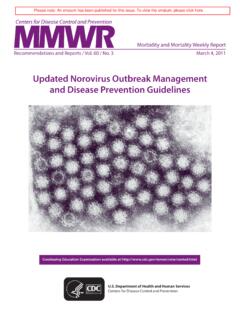Transcription of Fellowship Training Program in Nephrology
1 1 Fellowship Training Program in Nephrology Curriculum Division of Nephrology Department of Medicine Columbia University Medical Center Last updated: March 2012 2 TABLE OF CONTENTS TABLE OF CONTENTS ..2 INTRODUCTION TO THE CURRICULUM ..4 Program ORGANIZATION AND STRUCTURE ..5 Key Faculty .. 5 House Staff 5 COMPETENCY-BASED GOALS AND OBJECTIVES OF THE Nephrology Fellowship Program ..6 ACGME CORE CORE COMPETENCIES FOR Specific Program Content .. 11 Glomerular Diseases .. 12 Diabetes Mellitus and Diabetic 13 Hypertension .. 14 Acute Renal Failure and Intensive Care Unit Nephrology .. 14 Chronic Renal Failure .. 15 Dialysis .. 16 Acid-Base Disorders .. 17 Fluid and Electrolyte Disorders .. 18 Cystic and Inherited Diseases of the 19 Tubulointerstitial Disease and Urinary Tract Infections.
2 19 Transplantation .. 21 Renal Disease in Pregnancy .. 22 Renal Function Testing .. 22 Pharmacology of Drugs in Renal Disease .. 23 Professionalism and Ethical Conduct .. 23 Research Design, Methods, and Responsible Conduct .. 24 CURRICULUM FOR EACH ROTATION ..26 DIALYSIS-HEMODIALYSIS AND PERITONEAL DIALYSIS.. 26 30 CONSULT SERVICES (GENERAL Nephrology AND Nephrology -CARDIAC): .. 33 RENAL PATHOLOGY .. 37 AMBULATORY 37 DIDACTICS AND CORE CONFERENCES ..43 Goals and Objectives .. 43 Specific Objectives of Core Conference:.. 43 Other Departmental conferences: .. 43 Recommended Non-credit Courses/ Training : .. 44 Recommended reading/informational sources:..44 EVALUATION PROCESS ..45 A. The Fellow Evaluations .. 45 B. The Program Evaluations .. 45 DIVISIONAL POLICIES .. 45 A. Nephrology Fellowship : Job and Procedures Descriptions.
3 45 Essential Procedures (minimum 10 each for credentialing) .. 46 Elective Procedures (No minimum requirement) .. 46 3 Ultrasound guided biopsy: .. 47 B. Academic Due Process and Grievance Policy ..47 C. Fellow Supervision D. Fellow Moonlighting E. Recruitment and Applications: ..48 F. Promotion: ..48 G. Work Environment: ..49 H. Meetings/Conferences: ..49 I. Duty Hours and On-call: ..49 Duty Hours .. 50 On-Call Activities .. 50 J. Absence/Coverage: ..50 K. Evaluations: ..51 L. Gifts to Physicians From Industry ..51 M. Fellowship 4 INTRODUCTION TO THE CURRICULUM The clinical Training experience of the Nephrology Fellowship Program at Columbia- Presbyterian is designed to provide outstanding practical and academic Training in every aspect of Nephrology and prepares fellows for a productive career afterwards.
4 Over the last 30 years, there has been a dramatic increase in the body of knowledge relating to basic and clinical Nephrology . This curriculum attempts to incorporate these advances and is an intensely academic one, designed not only to provide a broad knowledge of Nephrology , but include the ability to integrate a number of equally important precepts- interpersonal skills, professional attitudes, humanistic qualities, and lifelong learning. This Curriculum is the combined effort of key faculty members and previous and current Columbia fellows;therefore, this is is a dynamic document. This Curriculum is a guide to what you are expected to learn in your 2 years as Nephrology Fellow. It is also a guide to help you and the faculty meet these goals as you rotate through each phase of your Fellowship .
5 The general description, goals, objectives, expectation and benchmarks of each rotation are described. Feedback during the Fellowship is of utmost importance. We need your feedback to assess how well we are meeting the goals are outlined in this curriculum. Every year you will be given evaluation forms to rate the Program and attendings that you worked with during each rotation. In addition, you are evaluated as well. At the completion of each rotation your attending will evaluate your performance; every 6 months you will meet with the Program Director to review these evaluations and discuss any problems or areas that have been identified that require additional help or intervention. Other (non-physician) members of the Nephrology team (including nurses and social workers) will also evaluate you to provide a 360 degree view of your performance.
6 Our website (maintained by your Program director) is a valuable resource for information about Fellowship activities, archives of important lectures, journal clubs and CPCs. The website found at: 5 Program ORGANIZATION AND STRUCTURE Key Faculty QAIS AL-AWQATI, , Chief of Nephrology GERALD B. APPEL, MD Clinical Director JAI RADHAKRISHNAN, , Fellowship Program Director Thomas L. Nickolas, , Associate Fellowship Program Director David Cohen, MD Medical Director, Renal Transplantation Anthony Valeri, MD Director Hemodialysis House Staff Program Bessie Craig is the Fellowship coordinator. The above faculty constitute the Education and Curriculum Committee and the Clinical Competence Committee. The committee meets annually to discuss fellow performance and education and make recommendations on curricular development and fellow remedial interventions and promotions.
7 6 COMPETENCY-BASED GOALS AND OBJECTIVES OF THE Nephrology Fellowship Program ACGME CORE COMPETENCIES In July 2001, the Accreditation Council for Graduate Medical Education (ACGME) introduced six newly defined areas in which fellows must attain competence over the course of their Training . Our objective is to prepare physicians who have completed three years of residency Training in Internal Medicine to become competent Nephrologists. The Training will provide the fellow with exposure to a wide variety of renal diseases and electrolyte abnormalities and a chance to perform the procedures necessary for the diagnosis and treatment of end-stage renal disease. The Program will allow the trainees to assume increasing responsibility in the management of renal disease in ambulatory, in-patient and intensive care settings.
8 Finally, trainees will be expected to initiate a research project under the guidance of one or more faculty members. Renal fellows are expected to learn patient care, supervisory, and teaching skills. They will expand their medical knowledge base, as they apply evidence based and cost-conscious strategies in patient care. Under the supervision of teaching attendings, fellows will develop progressive independence in their various responsibilities. As the most senior house staff members, fellows will recognize the important part they play as role models, counselors, and teachers to the more junior members of the teams. The consult fellows will serve as consultants to other services in the hospital. Patient Care: o Principal Educational Goals: Develop interviewing skills Develop physical examination skills Generate and prioritize differential diagnosis Develop rational, evidence-based management strategies o By the end of 1st Year of Fellowship , one must be able to.
9 Elicit the patient s history, past history, and the context in which the illness or symptoms occur Develop verbal and nonverbal communication skills in order to facilitate communication, elicit the emotional content of the interview, and provide comfort Ensure patient s understanding of Nephrology and other terms used Perform an appropriate, technically correct physical examination Synthesize pertinent renal data into a differential diagnosis Recognize psychosocial issues that may affect patient compliance and outcomes Accept personal responsibility to follow-up on patient care plans and test results Formulate a diagnostic and therapeutic plan without supervision Apply appropriate preventative care for the patient with kidney disease seen in an outpatient setting Overcome barriers to communication.
10 Including those derived from cultural differences or physical and mental impairment Generate an appropriate differential diagnosis in all patients 7 Develop an evidence-based therapeutic and diagnostic management plan independently for most patients Coordinate patient care among all members of the health care team Establish and identify oneself as a responsible and responsive team leader Counsel and educate patients and families about kidney disease Develop skills for end of life and palliative care discussions and planning for the ill patient with CKD and ESRD Optimize discharge planning and follow-up in the Nephrology clinic or dialysis unit Perform procedures (urine microscopy, temporary catheters, renal biopsy) required by the ABIM o In addition, by the end of the 2nd Year of Fellowship , one should be able to.










